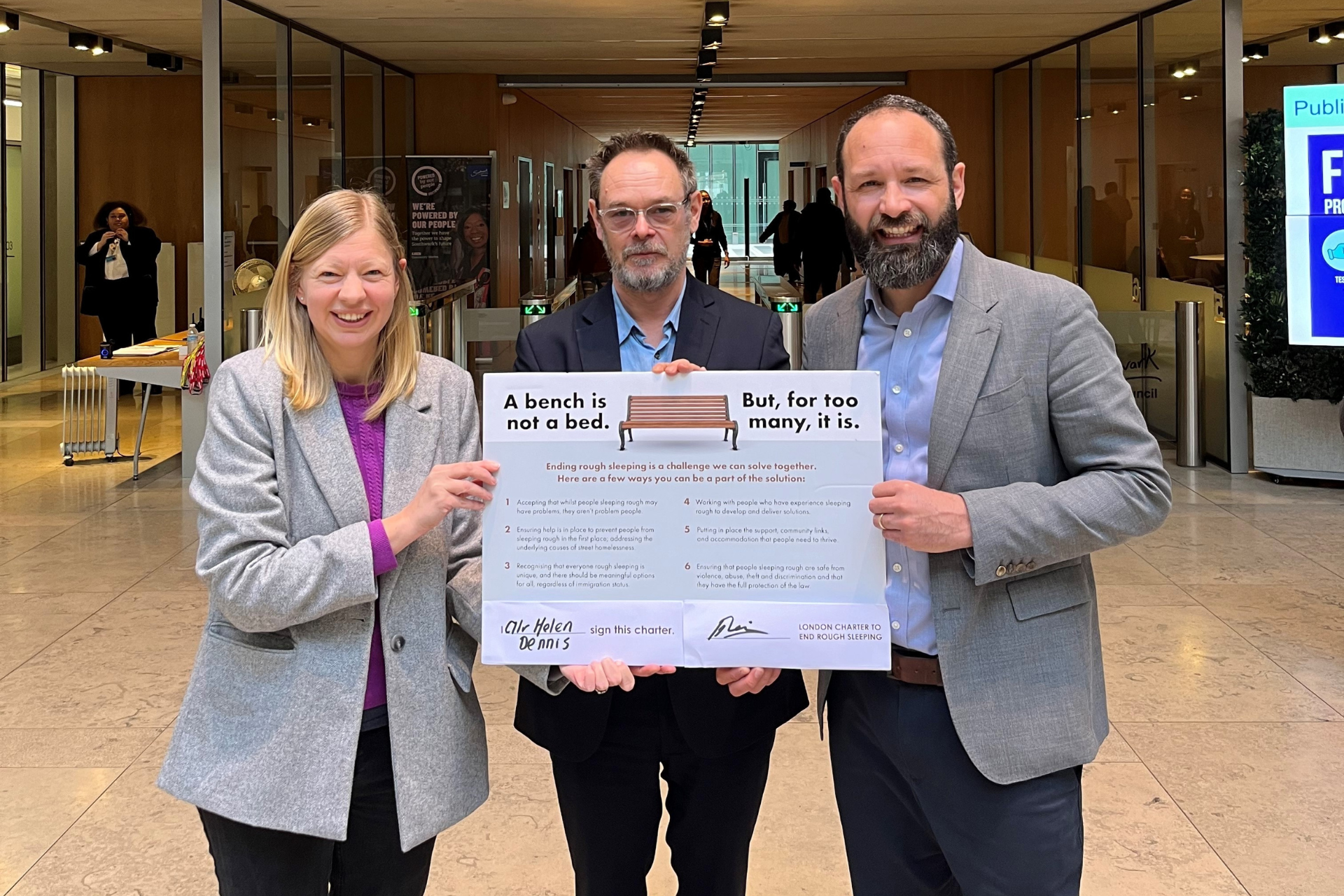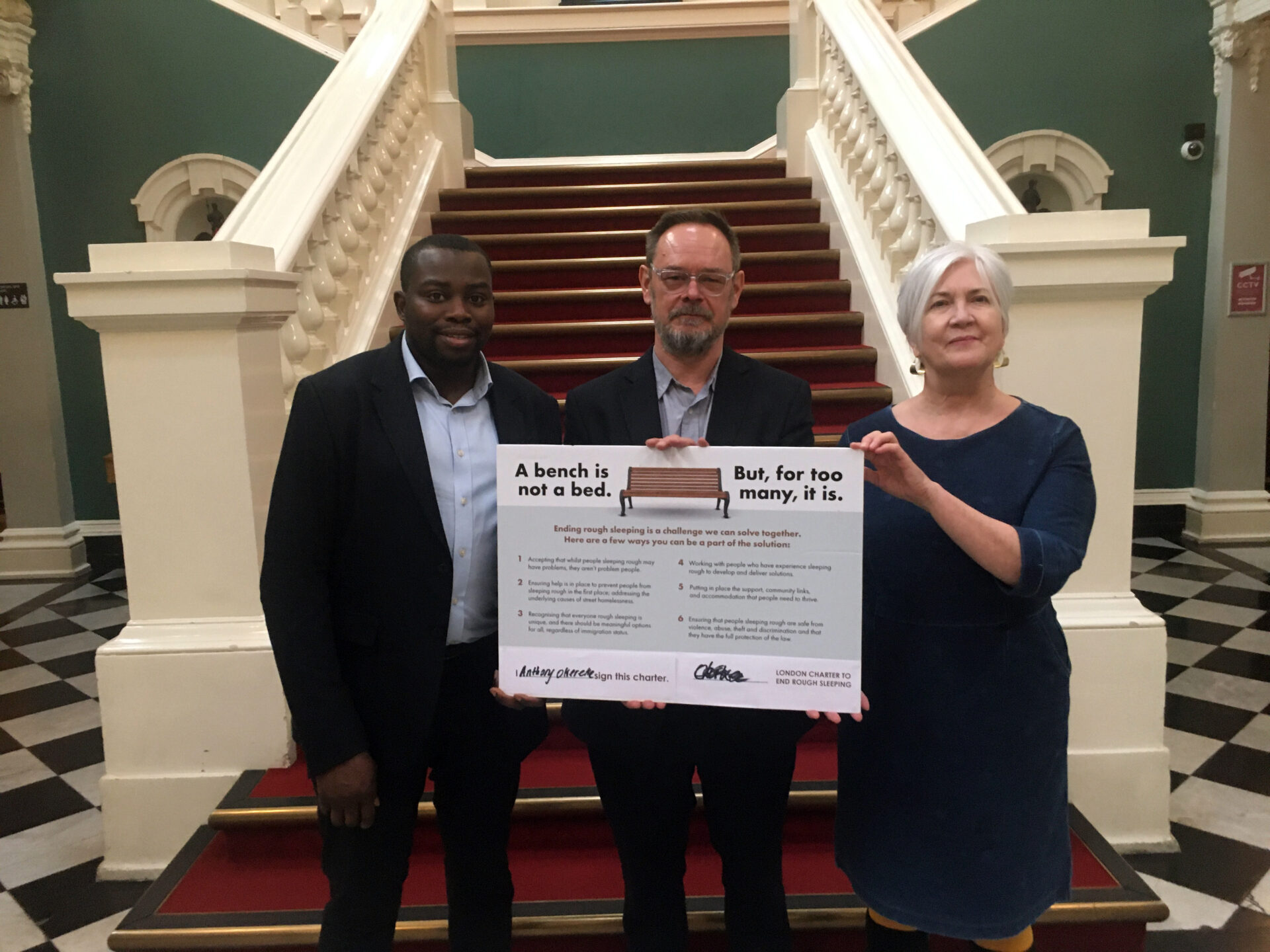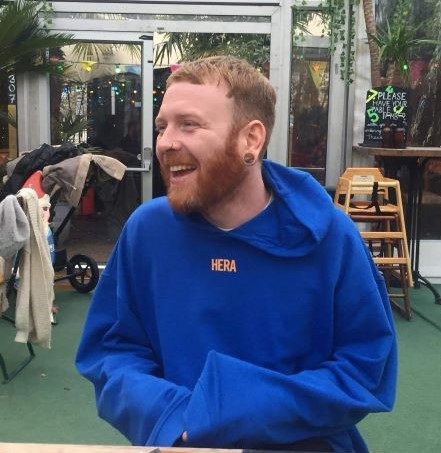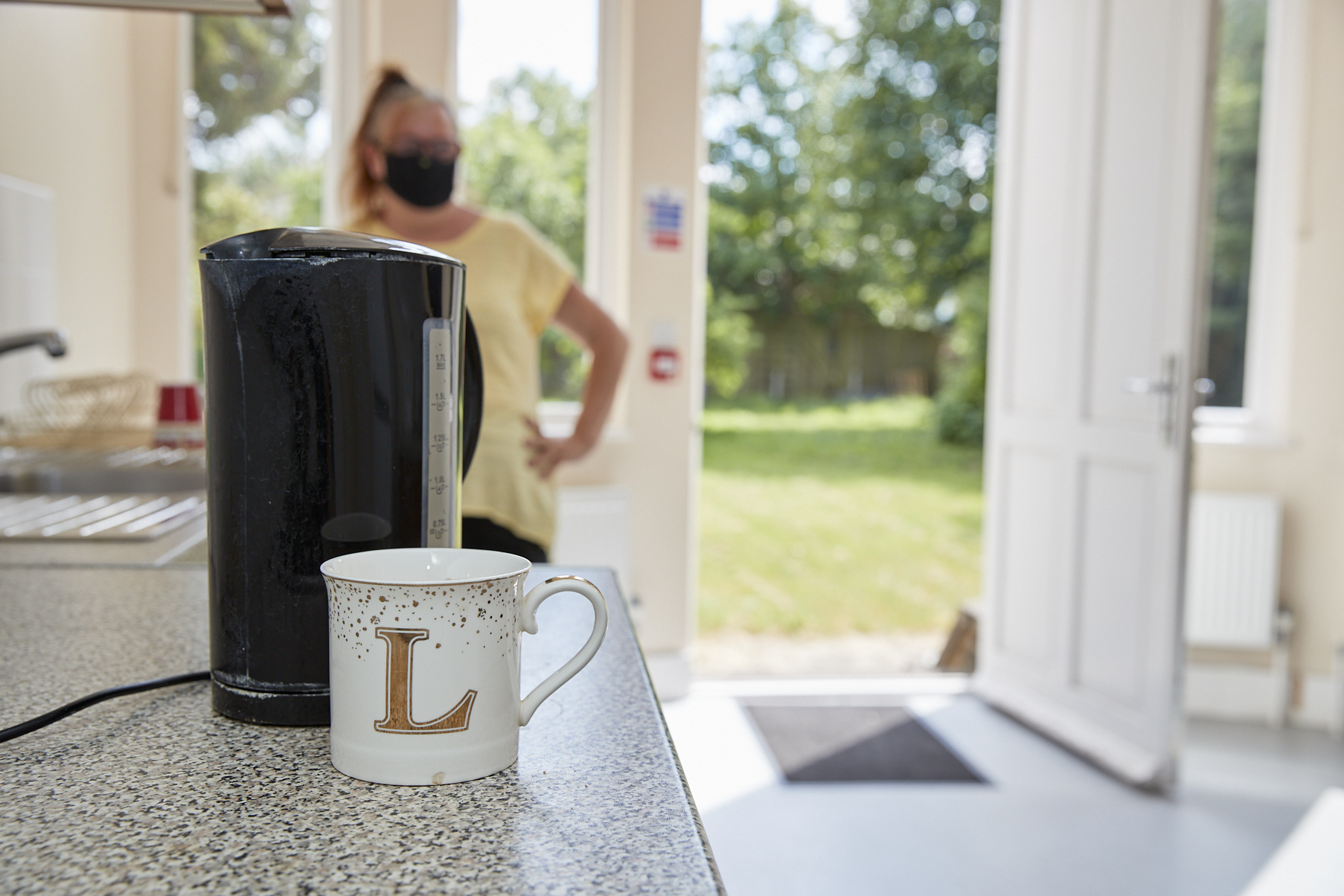Southwark Council sign London Charter to End Rough Sleeping
Southwark Council reaffirmed its commitment to ending rough sleeping, as a senior council figure signed the Charter to End Rough Sleeping.

Cllr Helen Dennis, Cabinet Member for New Homes, met with Thames Reach Chief Executive Bill Tidnam as she signed the London Charter to End Rough Sleeping on behalf of Southwark Council. Cllr Kieron Williams, Leader of Southwark Council, was also in attendance.
The Charter, which Thames Reach wholeheartedly supports, aims to unite individuals, businesses, faith groups, charities, and public bodies in the shared mission to eliminate rough sleeping in our city. It represents a public commitment, a pledge to strengthen partnerships, and an opportunity for diverse communities to actively contribute to a solution.
Quotes from those attending
Cllr Helen Dennis, Southwark’s Cabinet Member for New Homes and Sustainable Development, said:
“I’m proud to be here today with Thames Reach to make this incredibly important pledge to end homelessness and rough sleeping in our borough. Rough sleeping is a dangerous, isolating experience and should have no place in a modern, wealthy city. We’re determined to end it in our borough and to work together with our network of partners to support those who are homeless or vulnerable into a safe, secure home.”
Bill Tidnam, Thames Reach Chief Executive, said:
“Local authorities like Southwark are in the forefront of the effort to prevent homelessness, and to make sure that no-one need sleep on the streets. We recognise that this isn’t always easy in the current environment and we welcome Cllr Dennis’ signing of the Charter and the clear commitment this makes on behalf of the borough to work towards ending rough sleeping.”
The charter
By signing the Charter, individuals, businesses, and organisations make a real impact. It keeps the issue in the spotlight, showing policymakers that many care about ending rough sleeping in London.
Whether you’ve been a committed advocate or are new to the cause, your support goes a long way. Visit the Charter website to sign up, make a pledge, donate, or volunteer. Every small action adds up to the collective effort to end rough sleeping in London.



